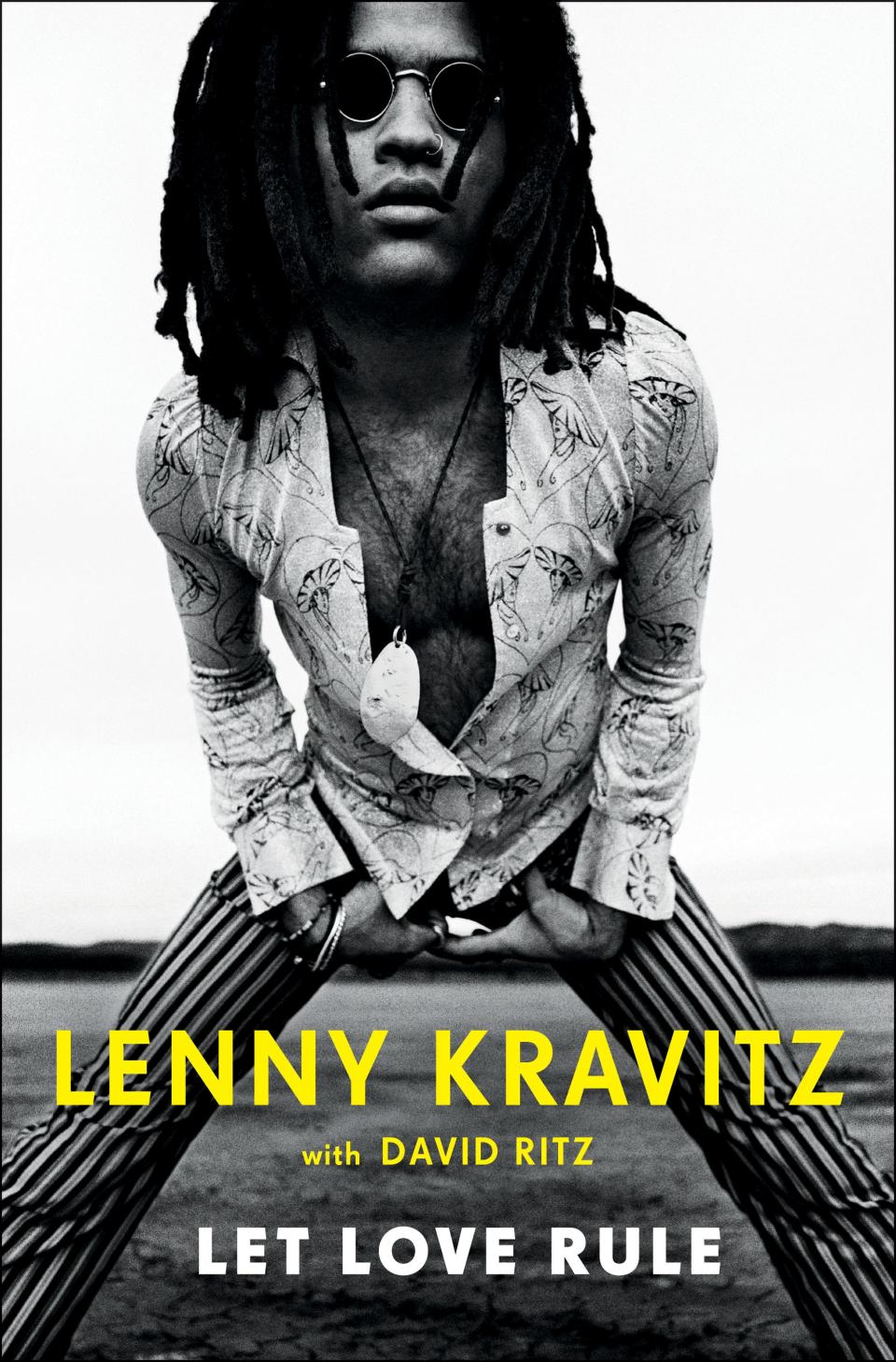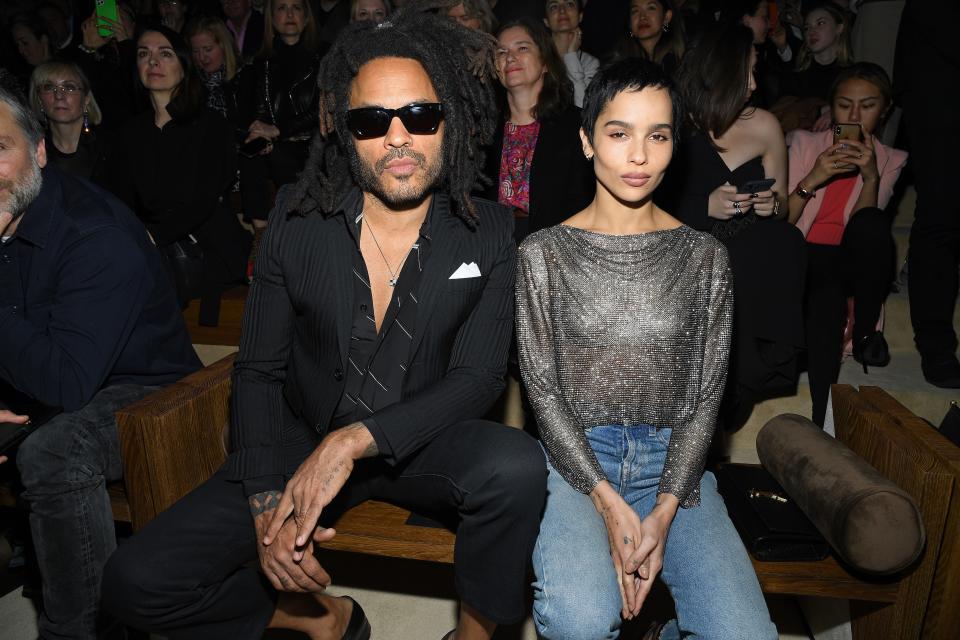'We're one big family': Lenny Kravitz talks new memoir, relationship with ex Lisa Bonet
"Let Love Rule" isn't the juicy tell-all we've come to expect of celebrity memoirs.
While most stars tend to spend just a few chapters on their childhoods and life pre-fame, singer/guitarist Lenny Kravitz instead devotes an entire book to his first 25 years.
"I figured there were enough books on rock stardom and fame," Kravitz tells USA TODAY. As he was writing, "I realized this was a book about finding my voice. I needed to take the time to go through my experiences as a child: all the love I got, and all the artists I saw growing up in New York City in the '70s and then moving to Los Angeles. All those people and experiences were notes of the music that I would eventually make."
"Let Love Rule" (Henry Holt and Co., 272 pp.), out Tuesday, shares all the musicians who shaped Kravitz growing up, including the Jackson 5, Stevie Wonder, Gladys Knight and Jimi Hendrix. He writes at length about his close bond with his mother, "The Jeffersons" star Roxie Roker, and rocky relationship with his stern father, TV news producer Sy Kravitz. He even touches on his early years with his now-ex-wife, actress Lisa Bonet ("The Cosby Show"), with whom he shares a daughter, rising star Zo? Kravitz ("The Batman," "Big Little Lies").
Kravitz, 56, opens up about his early experiences with racism, making peace with his dad and his blended family with Bonet.
Interview: Lenny Kravitz on new album 'Raise Vibration,' not being 'black enough'
'Is This Anything?': The 10 best jokes from Jerry Seinfeld's new book
Question: In the book, you describe yourself as "deeply two-sided" – Black and white, Jewish and Christian – and recall how a boy in your first-grade class called you out for being biracial. What kind of impact did that have on you?
Lenny Kravitz: Growing up, I remember seeing all these different-looking people. My family went to church, we went to temple, we celebrated both (Christmas and Hanukkah), and ate cuisine from both sides. Life was full of color and different traditions, and it was never discussed. So when I went to first grade and this boy found it odd that my parents did not match, I was a bit taken aback. I didn't understand where he was coming from. That's when the deeper conversations began, with my mother explaining to me why this boy called us out.

Q: You had a contentious relationship with your dad throughout his life, but write that he was ultimately a "vital part" of your journey. How long did it take for you to come to that acceptance or reconcile your relationship?
Kravitz: Before he passed (in 2005), we made peace. He finally let me in on things about his life that I didn't know. But I found I was still holding onto certain feelings about my dad, and in writing, I worked that out. Writing this book was the greatest form of therapy I could have had. I was able to look at him as a man who was walking this earth with what he had and what he was given from his experiences as a child. I was able to let go of whatever judgement I was holding onto. It was a really beautiful experience. I believe we're all given what we need to become who we need to become, and he was the exact father that I needed to become myself.
Q: There's a really powerful chapter where your mom and dad sit you down to talk about his infidelity. Rather than apologize, your dad tells you, "You'll do it, too." How did that moment affect your own relationships as an adult?
Kravitz: I didn't understand the severity of that statement, and that's not the answer my mother expected to come out of his mouth. She was passing the ball to my father, and that would have been his cue to say, "You know, son, I was wrong. I hope you learn from this, etc., etc." But he said what he said, and wow, that was really hardcore.
I look at it now after writing the book and think he was just speaking from his truth. He went through the same experience with his father, which is one of the reasons he left home young and went to the military. This was a monkey on his back that he'd been trying to get off, only to repeat his father's history. He just figured this was a generational problem that I, too, would repeat. It's quite deep – it's like something out of a play. And I didn't realize its power until I got older, and I had to really work on it and understand it and conquer it. That's taken (all) my energy and effort throughout my lifetime.
Q: Before you started dating Lisa (Bonet), you say you were content just being friends: "I wanted to be around her, whatever form that took." Do you believe that's why you've been able to remain so close even after your divorce? (They ended their six-year marriage in 1993.)
Kravitz: Yeah. For me, if you have a situation where you break up, that love does not vanish. You can't kill that energy, but the love will transform. So if I'm not loving you like this, I'll be loving you like that. We had a child (Zo?, in 1988), and we knew this was the only way. Letting love rule was always our example and the way we had to live. We're the best of friends and we're one big family: her new husband (actor Jason Momoa), her children, Zo? and myself. It's all love.

Q: You joked in another interview that your next memoir is going to be "real messy." Have you started working on it?
Kravitz: I say that with laughter. It just gets more complex. It does get into that whole world of rock stars and complicated relationships, dealing with what fame brings and all the characters that entered my life. It should be quite interesting, but I have a bit more life to live before I start working on that one.
This article originally appeared on USA TODAY: 'Let Love Rule': Lenny Kravitz talks memoir, first brush with racism
